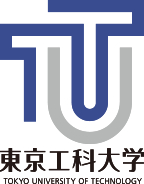Tokyo University of Technology to Build One of the first NVIDIA DGX AI Supercomputers Among Private Universities in Japan
Adoption of largest cutting-edge AI infrastructure among national private universities aims to accelerate the ‘AI University’ Initiative for cultivating AI talent and innovation creation leaders.
The AI supercomputer will be offered for all students, on projects including original LLMs and practicing AI Ethics.
The Tokyo University of Technology (Hachioji, Tokyo; President: Yutaka Kagawa) has announced the development of a large-scale AI supercomputer, built on NVIDIA infrastructure and software, aimed to accelerate the university’s AI education and research initiatives. The system, scheduled to begin operation in October, is expected to become the largest AI supercomputer among private universities in Japan.
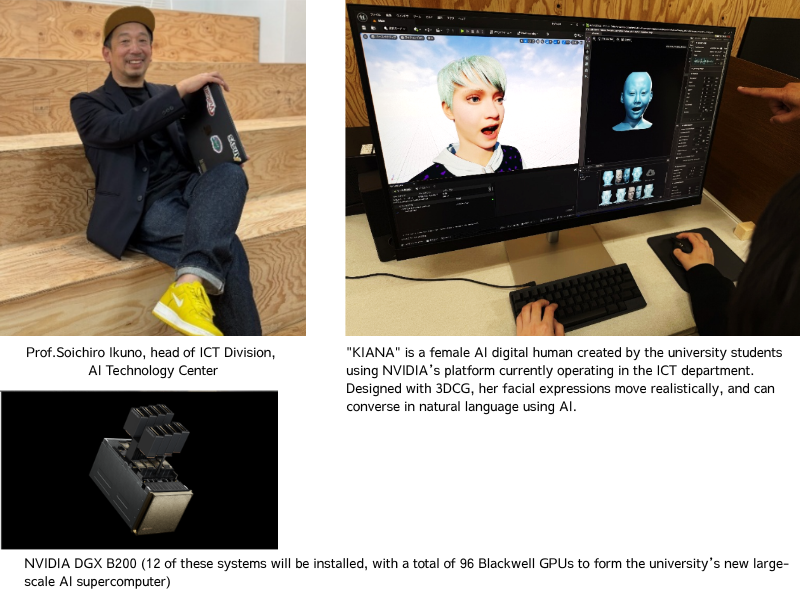
The AI supercomputer will be built on NVIDIA DGX B200 systems, running on the latest NVIDIA Blackwell GPU architecture, a platform designed to accelerate AI transformation, as well as the NVIDIA AI Enterprise software platform. It provides incomparable performance for the latest AI workloads, such as generative AI and large language models. Tokyo University of Technology will become one of the first universities in Japan to adopt DGX B200 systems, and will connect 12 DGX B200 systems on a high-speed NVIDIA Quantum InfiniBand network, to build an AI supercomputer based on the NVIDIA DGX BasePOD reference architecture. The total theoretical performance for AI training (FP8) is expected to reach 0.9 EFLOPS (90 quintillion calculations per second) .
Since the launch of the academic collaboration between Tokyo University of Technology and NVIDIA Japan in 2023, the two institutions have been advancing collaborations not only related to AI but also talent development and research. Through the NVIDIA Student Ambassador Program led by NVIDIA Japan, which strives to cultivate an understanding of NVIDIA’s technology and its applications, the Tokyo University of Technology has been receiving support from NVIDIA employees to learn about generative AI, robotics, and digital twin technologies.
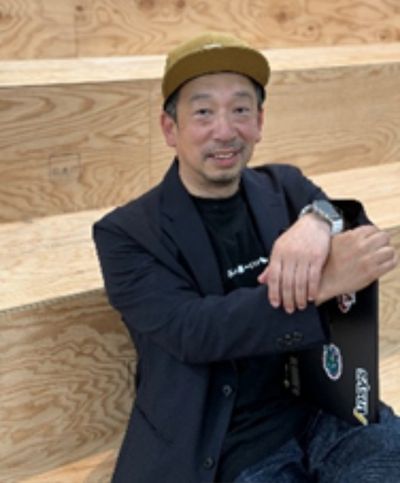
“We believe that the shortest route to the acquisition of AI skills lies in practice. However, if students are content with merely small-scale data and projects, they will be unable to learn the essence of AI utilization needed to create future innovation.” Comments Prof. Soichiro Ikuno, head of ICT Division, AI Technology Center, Tokyo University of Technology on the background of how the university came to a decision to develop a large-scale AI supercomputer for the students.
Currently, the Tokyo University of Technology offers students the environment to learn about latest data-driven applications and practical opportunities for generative AI projects, as well as advanced simulation technology, and academia-industry collaboration using digital twins. Students are eagerly participating in these projects, building up diverse experiences.
“AI is a technology that every student in every department will use from now on. We believe that enabling them to learn continuously using large-scale data and high-performance computing environments, free of resource limitations, will help them to grow into superior AI talents who can be active on the global stage. We also view practical education on AI Ethics as essential for the future of all students.” Ikuno says.
Future plans for education, research, and projects
For education, the supercomputer will allow students to acquire practical skills needed in the AI society of the future. For research, the university aims to solve advanced problems using cutting-edge AI technology and high-performance computing resources.
Main projects planned for 2025 following the installation of the supercomputer:
1. Practical education program for cultivating AI talent Through AI technology implementation experiences, the university will promote AI talent education programs which will prepare students to work in industries.
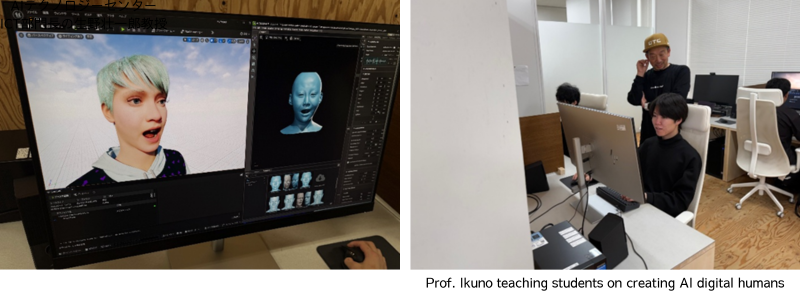
Development of an internal large-scale language model for education, research, and work support applications within a secure on-campus environment.
3. AI ethics* and governance verification environment
Develop an environment for education and verification related to the ethical and legal perspectives required for an AI society, promoting responsible AI utilization.
4. Digital twin projects
Initiate innovative testing and research for manufacturing and city designing, using digital twins, developed with NVIDIA Omniverse technologies, that link the real world with virtual spaces.
5. XAI (Explainable AI) through AI ethics and legal credibility research
Aims for the development of AI with transparency, fairness, and legal credibility using AI technology that can explain the basis of its judgments to humans (XAI).
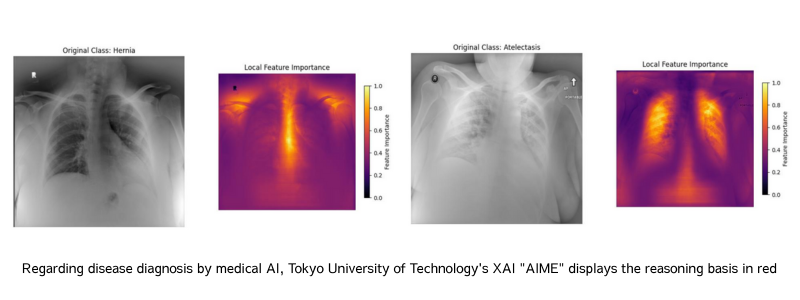
With the fusion of high-performance computing and AI, the university will challenge on precise analysis and predictions for complex physics projects which were difficult to tackle using traditional methods
Comment from Yutaka Kagawa, President of Tokyo University of Technology
“There is an urgent need to cultivate human resources with AI literacy. However, compared to the rest of the world, AI education in Japan has unfortunately fallen behind. With ‘AI as a TOOL’ as our slogan, we will launch top-level AI education in the country. By offering the highest educational environment in Japan, powered by NVIDIA technology, students can learn the skills required not only in the society now, but also 10, 20 years in the future. Here, students can learn everything from AI basics and fundamentals to the latest applications. We accept both college-age students and working adults. Students with diverse values and nationalities can learn this cutting-edge technology together, and also continue to update their skills after leaving, at each life stage. I hope that those who study at Tokyo University of Technology will be able to propose AI-driven solutions to address problems in their future lives in society.”
Comment from Jack Wells, Director of Higher Education and Research Computing at NVIDIA
“As AI reshapes business and society, Japanese universities can lead the next generation in embracing AI as a tool for innovation and research, and as a catalyst to transform teaching, foster critical thinking and prepare students to thrive in a rapidly changing world. With its NVIDIA Blackwell DGX infrastructure, Tokyo University of Technology is building a foundation for cultivating the critically thinking and AI-ready leaders Japan needs for the future.”
Background of Prior AI Initiatives
Tokyo University of Technology has continually been a leading organization in practical and advanced technology education, and has been one of the first universities to engage in AI education. In addition to establishing an Artificial Intelligence Program in the School of Computer Science in 2019, the university also provided an environment for students in all fields of study to proactively participate in a program to experience using AI. Currently, with AI technology as the core of the university’s education and research, Tokyo University of Technology has announced an “AI University” concept, a comprehensive initiative which seeks to cultivate next-generation technology human resources, solve social problems, and strengthen linkage with industry. As the base location for this core concept, the AI Technology Center was opened in the Hachioji campus this April.
The new AI supercomputer will be installed in the ‘AI core base (TUT AI CORE BASE)’ of this AI Technology Center and is scheduled to start operation in October this year.
*AI Ethics is a framework for establishing standards and design methods to ensure AI is created and used properly, ensuring it benefits people and society. Internationally, the G20 AI Principles adopted in 2019 set it as a major guideline, emphasizing the main values of “Fairness, Explainability, and Transparency.”
■ About Tokyo University of Technology
Tokyo University of Technology opened in 1986 in Hachioji, Tokyo as the Katayanagi Institute. It opened Japan’s first Department of Media in 1999, followed by the Department of Bionics (Current Department of Bioscience and Biotechnology) and Department of Computer Science in 2003. The Department of Design and Department of Health Sciences on the Kamata Campus in Ota Ward opened in 2010, followed by the Department of Engineering in 2015. Currently, the institution is a science and engineering university with 6 faculties and a graduate school that has approximately 8,000 enrolled students. The incorporated educational institution also operates Nippon Engineering College, one of the largest general vocational schools in Japan.
■You can find the Japanese version of the article here.
https://www.teu.ac.jp/press/2025.html?id=131
